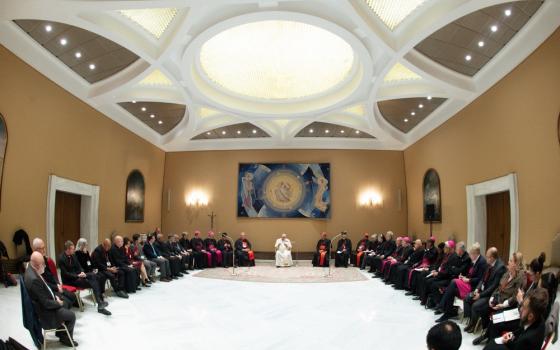All the wringing of hands that surrounds President Obama’s Nobel Peace Prize reminds me of a very early morning breakfast I had thirty years ago with another Nobel Peace Prize recipient.
It was January of 1979, and I woke up at five o’clock on a dark bleak Moscow morning to hail a cab outside the enormous, Stalinesque Hotel Russiya. I was a senior in college at Columbia University then, and I climbed into the taxi with my friend Mitchell. We both ran the university daily newspaper and through a series of phone calls from supposedly secure lines, we had arranged an interview with Andrei Sakharov on behalf of Ivy League student newspapers.
He had won the Nobel Peace Prize in 1975 for his work on behalf of human rights in the Soviet Union. Sakharov spent his earlier years as a nuclear physicist, part of a team of scientists that developed the Soviet hydrogen bomb. That work lead him into a life of relative privilege in the USSR – but as time worn on, he could not look past the corruption and abuse that plagued his country’s political system.
Our car stopped outside a once-grand turn-of-the-century apartment building on Moscow’s Garden Street, one of the better parts of town despite its drab appearance back then. We climbed up four flights of stairs, past the sharp stares of two men fixing an elevator that did not seem broken. Their eyes followed us as we walked on.
We rang a bell, and explained who we were in very broken Russian to an old woman at the door. She looked at our Western-student attire and shook her head vigorously: “You want Sakharov,” she blurted out. “He’s one floor below.” She slammed the door in our faces.
Another door creaked open one floor down, and another old woman waved us in. She was Sakharov’s mother-in-law. (His wife was in the West for eye surgery, granted only after one of Sakharov’s frequent hunger strikes.)
Although our contacts swore all was arranged, no one in the apartment knew we were coming. Still, the Nobel Peace Prize winner, hair askew from sleep, a threadbare robbed wrapped around his pajamas, emerged from his bedroom to greet us.
As his mother-in-law made tea in a samovar and sliced up black bread, Sakharov spoke to us in fluent English. His manner was generous and relaxed, as he talked about his life and how he got to this place in it. Honestly, I remember now only a little of what he said that morning (and I can’t find my old copy of the interview we printed). But I remember vividly the kind of man he was: he seemed very, very patient.
If there is anything that binds Peace Prize laureates, it seems to be patience. They know that making war is fast, but the work of peace is slow. No one goes into the peace business because they need instant gratification.
Sakharov asked us a lot of questions about the U.S., Massachusetts in particular. His step-daughter had been allowed to emigrate there, and was living outside Boston with her husband and children. He showed us family photos, and said he hoped to visit them soon. Still, he seemed patient.
Within a year of our visit, the Soviets would drive Sakharov out of Moscow. He would spend years in internal exile in Gorky, away from friends, family, and things like modern medical care. But he continued to speak out, continued to work – and in 1986, Mikhail Gorbachev let him move back to Moscow. In 1989, Sakharov became a member of a democratic Soviet parliament.
He died later that year, but had lived to see his patience rewarded.
I think about this because of all the wagging tongues who say Obama got his Nobel too soon - - that he’d not done enough yet to earn the recognition. That much may be true, but to me Obama – on issues of conflict and peace -- exhibits that same sense patience. The same understanding that none of this is easy, and none of it gets done by people in a hurry. (They call it a “rush to war,” but I’ve never heard of a “rush to peace.”)
Maybe that’s what the Nobel committee saw, too – and raced forward to acknowledge that.




